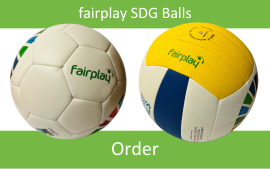Club 2×11 book presentation "Bans, resistance, great successes – 100 years of women's football in Austria"
At the Club 2×11 special on May 28, journalist and author Birgit Riezinger presented her new and highly recommended book on the most important developments in women's football Presenter Elisabeth Auer led the discussion. In addition to Birgit Riezinger, Nadine Prohaska (football player, including FC Bayern Munich, SKN St. Pölten, SC Sand, national team) and Christa Tauschek (teacher, football coach, former soccer player, championship title with FavAC 1972/73, FS Elektra Wien) were also guests.
Tauschek delivered a firework of anecdotes, told of obstacles, but also of the enthusiasm of her generation. Tauschek was an important source for Riezinger about the difficult initial phase in the 70s and 80s. She also talked about a tour abroad in Southeast Asia and how, as a teacher, she got girls into football via the football mini-league (www.miniliga.at). One of these girls was the national team coach Irene Fuhrmann. Tauschek has since become an enthusiastic fan of the Austrian national team and was not only present at the international matches in Austria, but also at the European Championships in the Netherlands in 2017 and in England in 2022.
Euro 2017 was also Birgit Riezinger's most impressive experience in football as a journalist. At the time, she was in the Netherlands for the daily newspaper Der Standard and wrote a daily column. It was a small group of journalists who had already covered the national team and the players beforehand and knew each other. The atmosphere was extremely good and the victory over Switzerland in the first group game created an incredible euphoria that also spilled over to the journalists.
For her book, she was happy to have found many interviewees who were willing to share their knowledge with her. In addition to Christa Tauschek, these included Gerhard and Frida Traxler from USC Landhaus. The founder and long-time Landhaus chairman is represented in the book with a detailed interview, but has sadly passed away in the meantime. Frida Traxler was in the audience, as were other former players and Peter Leitl, the first team manager of the ÖFB national team.
The ÖFB was cited as one of the obstacles to the development of women's football in Austria - in addition to the social developments after 1945 - as there was a ban on women playing on association pitches until 1971. But they played anyway. In 1972/73, the Austrian league was restarted after the first attempt in the 1930s
The first report of a women's football match in Austria dates back to 1923. In 2023, when Riezinger completed the book, women's football had therefore existed in Austria for 100 years. Riezinger used two sources about this early period, namely the book "Frauenfußball und Maskulinität" by Matthias Marschik from 2003 and the book "Eine Klasse für sich", also written by him together with Helge Faller in 2022, about the Viennese championships in the 1930s, which was unique in the world at the time. Riezinger spent many days in the National Library researching the original sources and additional material. The Second World War was a huge "stopping factor", although there was then a 30-year break between 1938 and 1968! And it actually took until 2011 for the development to pick up speed and great successes were achieved within a short space of time.
In 2011, the ÖFB initiated the national center for women's football in St. Pölten, now the ÖFB Women's Academy. Dominik Thalhammer was the first head of the academy and was appointed as team manager in the same year. He brought women's football i.e. the national team, extremely forward. His successor was Irene Fuhrmann in 2020. After that, the first players came out of the academy over time.
One of these players was Nadine Prohaska, who enriched the discussion with her experiences from her international career. She started out as a teenager at USC Landhaus, then played for SV Neulengbach, Bayern Munich, SKN St. Pölten and SC Sand. And she was part of the successful team that took third place at the European Championships in 2017. Prohaska can therefore compare how the conditions in the various areas such as equipment, medical care, infrastructure, pay, etc. have developed in an international comparison. She played for Bayern from 2009 to 2011, for example, and a lot has improved there too since then.
Finally, Birgit Riezinger and Elisabeth Auer took it in turns to read out quotes from the book, some of which made the audience laugh out loud. And it was not always immediately obvious whether the chauvinistic, sexist statements were from before or after the Second World War.
Club 2×11 is an event organized by Büchereien Wien, the fairplay initiative, Wir Frauen im Sport and ballesterer.
Photos: ©StadtWien-Buechereien/Stephan







